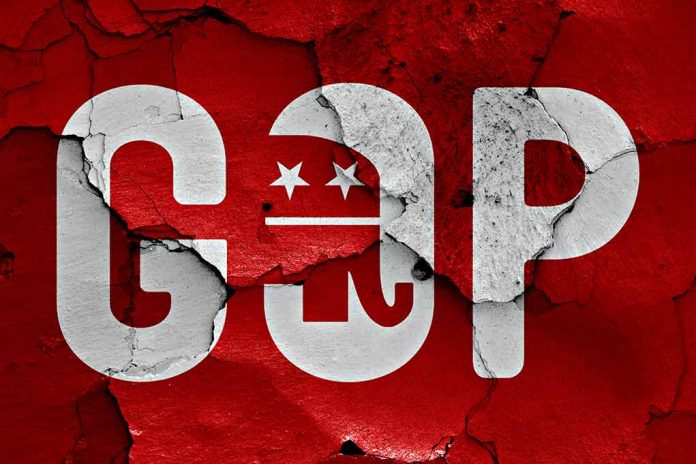
A recent study reveals a potential decline in Christian voter turnout, posing a significant challenge for Republican election strategies in the upcoming presidential race.
At a Glance
- Christian voters, particularly practicing Christians, have traditionally been a stronghold for conservative candidates
- Two-thirds of Americans identify as Christian, with 55% being “practicing Christians”
- The decline in white Christian representation could impact Republican electoral success
- Younger generations of white evangelicals are becoming more progressive on social issues
- Despite declining numbers, white evangelicals remain a significant voting bloc, constituting about 14% of the electorate
The Changing Landscape of Christian Voters
Christian voters have long played a crucial role in shaping the outcome of U.S. elections, particularly in favor of conservative candidates. However, recent studies suggest a potential shift in this demographic’s voting patterns, which could have significant implications for the Republican Party’s electoral strategies.
According to research from the Baker Institute, two-thirds of Americans identify as Christian, with 55% being “practicing Christians.” These practicing Christians tend to vote more frequently than other eligible voters and often align with conservative positions. This high voter turnout has historically given them an outsized influence on election outcomes, typically benefiting Republican candidates.
The Decline of White Christian Representation
Despite their historical significance, the landscape of Christian voters is changing. The Brookings Institution reports a decline in white Christian representation in the U.S. population, particularly among younger generations. This shift is attributed to the rise of religiously unaffiliated Americans and increasing racial diversity.
While white evangelicals have been a loyal constituency for former President Donald Trump, rewarding him with support for policies such as the overturning of Roe v. Wade, their declining numbers pose a challenge for future Republican campaigns. Despite this decline, white evangelicals remain a significant voting bloc, constituting about 30% of Republican identifiers and 14% of the electorate.
Generational Shifts and Political Alignment
An important factor in the changing Christian voter landscape is the generational shift in political attitudes. Younger generations, including younger white evangelicals, are becoming more progressive on social issues, though they remain conservative on abortion. This shift could potentially alter the traditional alignment between white evangelical voters and the Republican Party.
The political alignment of white evangelicals with the Republican Party has deep roots, beginning with a backlash against the Democratic Party’s civil rights stance and continuing through the rise of religious conservatism in the 1980s and 1990s. Today, white evangelicals are distinct in their partisanship and ideology, with a significant majority identifying as Republicans and conservatives.
Implications for Future Elections
As the 2024 presidential election approaches, the potential decline in Christian voter turnout presents a significant challenge for Republican strategists. The evangelical vote remains influential in Republican primaries, particularly in states like Iowa, complicating the GOP’s stance on issues like abortion.
The role of Christianity in the 2024 election is expected to be significant, with potential influences from Christian nationalism and polarized media. As the Republican Party gears up for a likely contest between former President Donald Trump and Vice President Kamala Harris, engaging and energizing this crucial voter segment will be essential to counter the expected reduction in turnout and maintain their electoral success.
As the political landscape continues to evolve, both parties will need to carefully consider the changing dynamics of the Christian voter base. While traditional alignments may be shifting, the influence of Christian voters on American politics remains substantial, ensuring that their role in shaping election outcomes will continue to be a subject of intense focus and strategy in the years to come.














